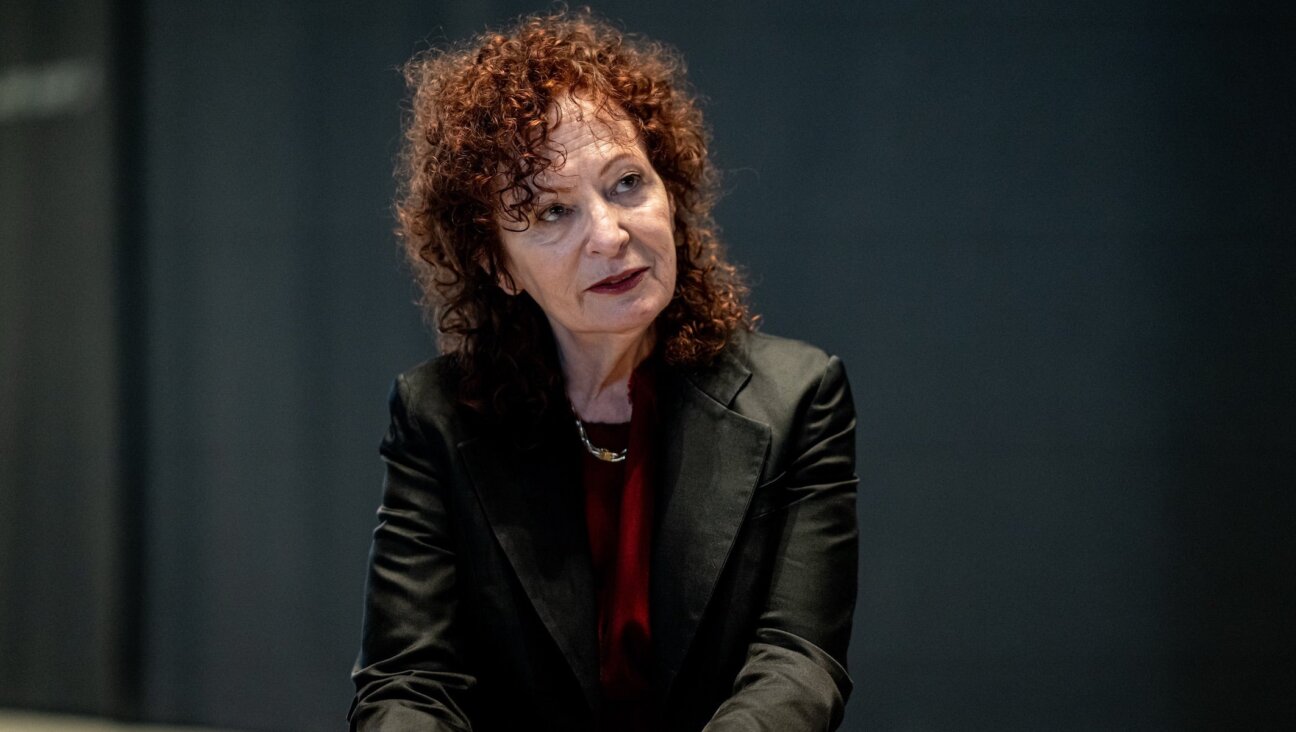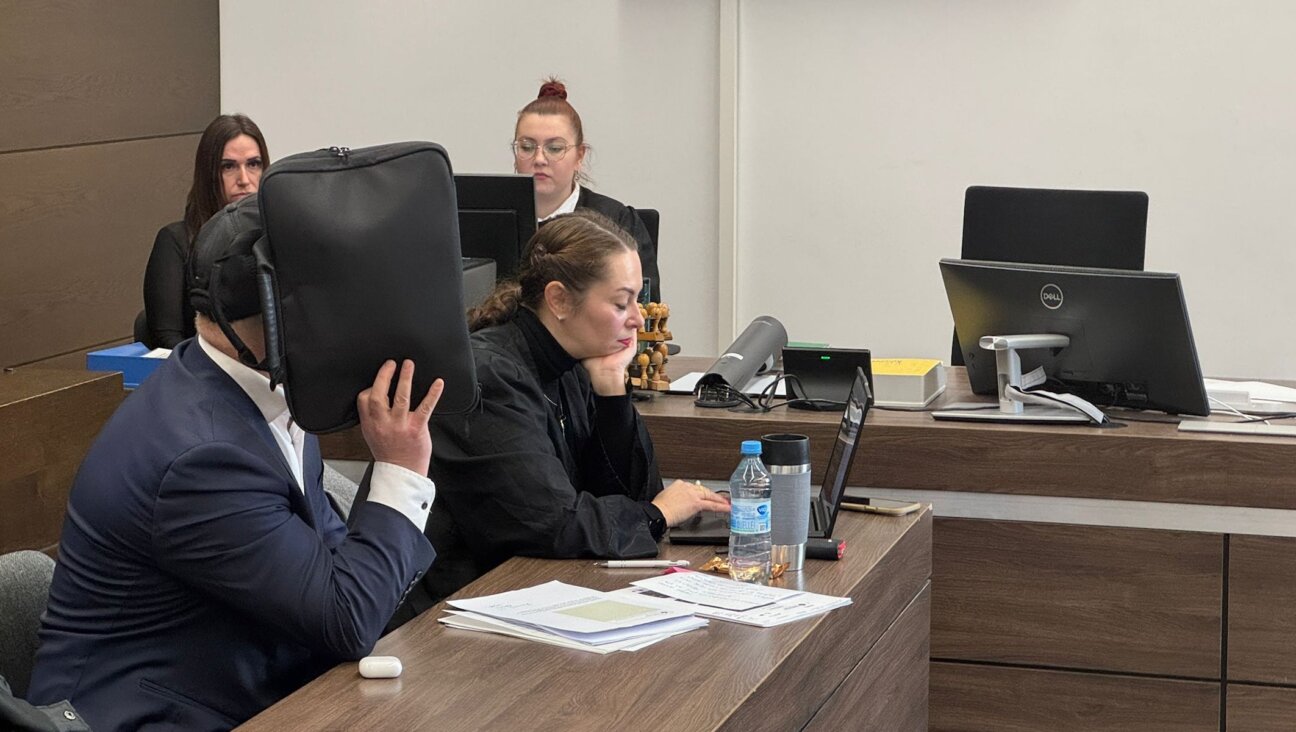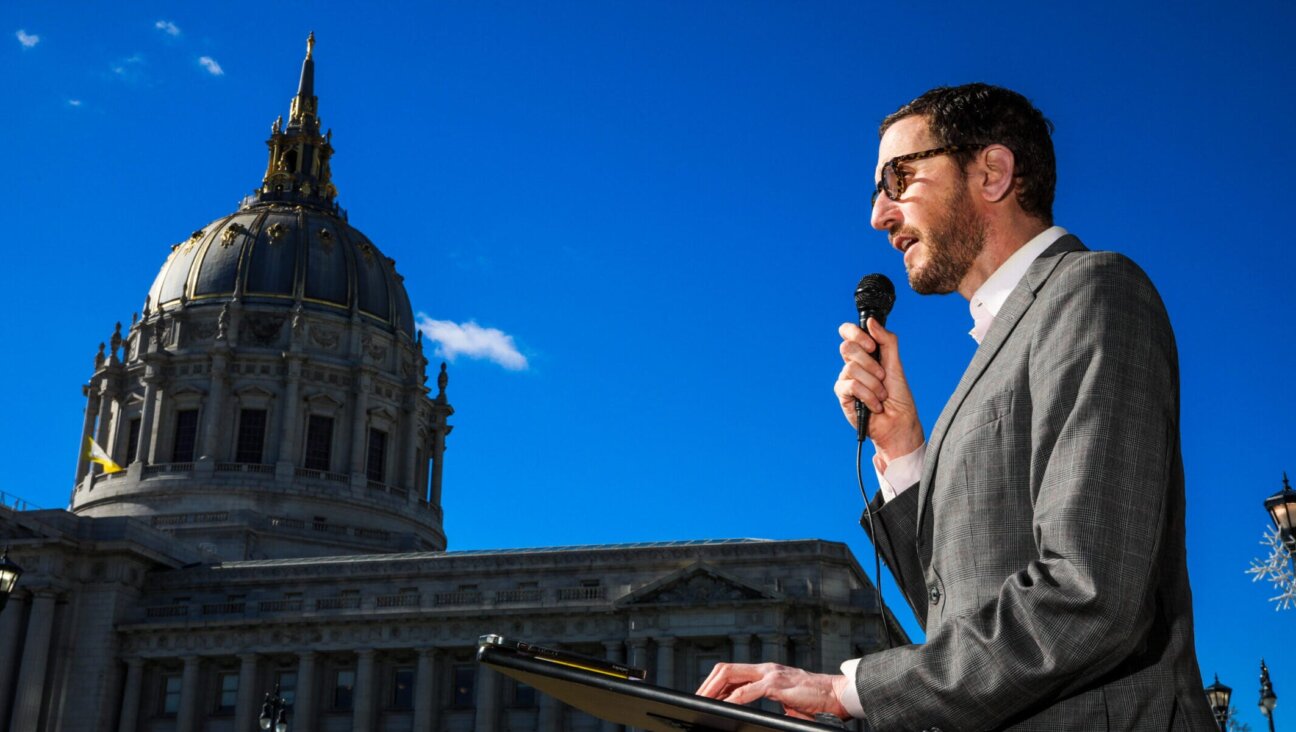A Cornell Professor, a Wesleyan Murder Suspect — and a Case of Mistaken Identity
For weeks, Stephen L. Morgan, Director of the Center for the Study of Inequality at the Department of Sociology in Cornell University, has scoured the Internet in order to remove his picture from the news sites, search engine caches and blogs, where it was mistakenly used as to represent another Stephen Morgan — the alleged killer of the Jewish Wesleyan University student Johanna Justin-Jinich.
On the day on which the police announced a national manhunt for 28-year-old Morgan, who escaped after fatally shooting Justin-Jinich in Connecticut, Prof. Morgan of Ithaca, N.Y., was shocked to discover that an old picture taken for his driver’s license in Massachusetts in 1998 appeared almost everywhere, used in the story of the fugitive suspect who shares his name.
“The first time we heard about it was from my former student, who called the university and said that he saw on MSNBC that Professor Morgan shot someone, but how can it be, ‘he is such a nice guy.’” Prof. Morgan recalls.
“It turned out that the police in the very early stages of the investigation pulled my file of the driver’s license, and they claim they sent it to Wesleyan only to check the photo against their internal database, and Wesleyan said they were unclear how to use the photo.”
“But Wesleyan sent it to their students and put it on their website for the world to see, the local media picked it, and soon it was on CNN, with voiceovers from the police chief and the mayor of the town. The story went out in AP, and it was everywhere, lots of blogs picked it up.”
The publication of excerpts from the diary of Stephen Morgan the suspect, in which he threatened Jews, only made things worse for Stephen Morgan the professor of sociology.
“The ADL [the Anti-Defamation League] sent my picture to synagogues, and to be a subject of a manhunt was quite shocking,” he says. “Of course, it’s nothing in comparison with what the real victim of his horrible crime suffered. But it was very bizarre and uncomfortable to deal with it.”
When the suspected killer was still at large, Stephen L. Morgan found himself having to discuss with his wife and kids how best to deal with the situation in which they had found themselves.
“Luckily, the real suspect turned himself in pretty quickly, otherwise we’d really be concerned for my security. But we still were concerned, because the picture then popped up in every Google search for Stephen Morgan the killer; it took about two weeks to remove it from the major sites. What was concerning that it was presented as a hate crime – and my photo was there. The fear was there would be some crazy guy who would think the police got the wrong man. But the chances are slim, and I don’t think the person in custody will be using me as an alibi; I don’t look like him.”
CNN ran a correction of the story pretty quickly (“But we didn’t want them to show my picture again”), and the ADL issued a correction to the synagogues, but despite having the real suspect behind the bars, Prof. Morgan admits some tension still remained.
He recalls an episode in which he saw an unmarked jeep approaching his house. “No one usually gets to our driveway, we live in a very remote area,” he says. “I ran up and locked the door… Fortunately, it was someone delivering flowers for my wife. So there was a certain amount of discomfort. And the picture is still on a couple of the automatic news blogs that are aggregating AP news stories, and I’m still trying to figure out how to take it off.”
Prof. Morgan is grateful to Cornell University for acting so quickly on his behalf. “They called many, many media outlets. They discovered it earlier than me because I was out for lunch when CNN first called them to ask for their reaction to this story. Frankly, I never felt more protected by an institution. Wesleyan University called to apologize, but they tried to claim it was the police’s fault and I am not sure it was the entire story.”
While trying to assess the impact of the picture, Prof. Morgan read almost every article about the suspected killer. “He seems like an abysmal person and it’s embarrassing for all Stephen Morgans in the world to be associated with this horrible crime,” he says. “I didn’t like the hate crime motive there, and I certainly didn’t want people to think a Cornell professor is related to it.”
Like many media outlets, Haaretz.com, which originally published this story, also ran the incorrect image on its homepage for a short period of time. Haaretz has apologized “for any discomfort this may have caused to Professor Morgan and his family.”













